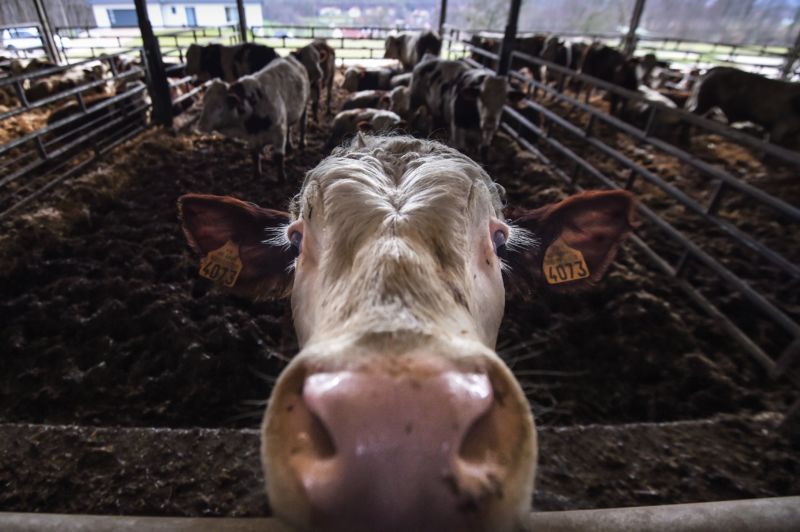
A deadly outbreak of multi-drug resistant Salmonella that sickened 225 people across the US beginning in 2018 may have been spurred by a sharp rise in the use of certain antibiotics in cows a year earlier, infectious disease investigators reported this week.
From June 2018 to March of 2019, officials at the Centers for Disease Control and Prevention identified an outbreak of Salmonella enterica serotype Newport. The strain was resistant to several antibiotics, most notably azithromycin—a recommended treatment for Salmonella enterica infections. Before the outbreak, azithromycin-resistance in this germ was exceedingly rare. In fact, it was only first seen in the US in 2016.Yet in the 2018-2019 outbreak, it reached at least 225 people in 32 states. Of those sickened, at least 60 were hospitalized and two died. (Researchers didn’t have complete health data on everyone sickened in the outbreak.)
Infectious disease researchers investigating the cases traced the infections back to beef from the US and soft cheeses from Mexico (mostly queso fresco, which is typically made from unpasteurized milk). Genetic testing suggests that cows in both countries are carrying the germ.
In a report published August 23 by the CDC, the investigators note that just a year earlier, the Food and Drug Administration recorded a spike in the use of antibiotics called macrolides by cattle farmers. From 2016 to 2017, cattle farmers increased their use of macrolide antibiotics by 41%. Macrolides are a class of antibiotics that includes azithromycin. Because antibiotics within a class work to kill bacteria in similar ways, bacterial resistance to one drug in a class could lead to resistance to other drugs in the same class.The investigators suggest that the surge in macrolide use could have encouraged the rise and spread of the azithromycin-resistant Newport strain.
“Because use of antibiotics in livestock can cause selection of resistant strains, the reported 41% rise in macrolide use in US cattle from 2016 to 2017 might have accelerated carriage of the outbreak strain among US cattle,” they wrote.
“Avoiding the unnecessary use of antibiotics in cattle, especially those that are important for the treatment of human infections, could help prevent the spread of [multi-drug resistant] Newport with decreased susceptibility to azithromycin.”
In recent years, around 70% of all medically important antibiotics in the US have been sold for use in animals. Public health advocates say agricultural use of antibiotics should be reduced significantly to preserve the effectiveness of the drugs.
To reduce the risk of infections—drug resistant or not—health officials advise consumers not to eat cheeses made from unpasteurized milk and to make sure beef reaches safe cooking temperatures: 145°F (62.8°C) for steaks and roasts followed by a 3-minute rest time, and 160°F (71.1°C) for ground beef or hamburgers.
reader comments
98